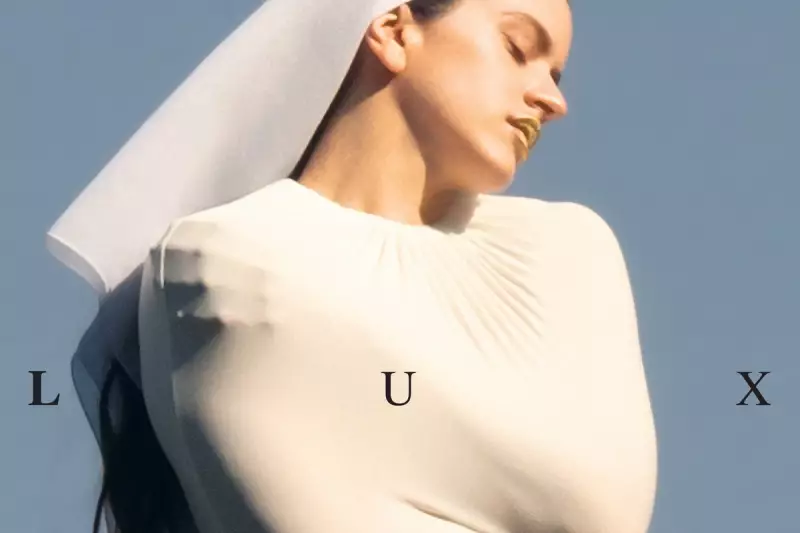
Rosalía's Radical Spiritual Shift Enchants the Vatican
Global Spanish pop sensation Rosalía, celebrated for her innovative fusion of flamenco with urban Latin beats, has stunned the music world with a dramatic artistic transformation. Her latest album, "Lux" - meaning "Light" in Latin - represents a bold departure from her Grammy-winning predecessors, embracing overtly spiritual themes that have unexpectedly found favour within the highest echelons of the Catholic Church.
Ecclesiastical Endorsements for a Spiritual Journey
The album's profound spiritual exploration has garnered remarkable praise from Vatican officials, including Cardinal José Tolentino de Mendonça, prefect of the Vatican Dicastery for Culture and Education. The cardinal told Spanish news agency EFE that Rosalía has identified a widespread contemporary dissatisfaction with secularism, noting that "when a creator like Rosalía speaks of spirituality, it means that she captures a profound need in contemporary culture to approach spirituality, to cultivate an inner life."
This ecclesiastical approval began with Xabier Gómez García, bishop of Sant Feliu de Llobregat, which includes Rosalía's hometown of Sant Esteve Sesrovires near Barcelona. In an open letter to his congregation and subsequent interview with The Associated Press, Bishop Gómez acknowledged that while some songs were "provocative," Rosalía "speaks with absolute freedom and without hang-ups about what she feels God to be, and the desire, the thirst (to know God)." The diocese confirmed that Rosalía's grandmother regularly attends mass in Sant Esteve Sesrovires.
An Ambitious Musical Tapestry
"Lux" comprises fifteen tracks performed in thirteen different languages, incorporating Latin, Arabic, and Hebrew fragments alongside its exploration of divine yearning. The album represents a complete artistic reinvention for the 33-year-old artist, who explained her motivation during a press conference in Mexico City last month: "In the end, in an age that seems not to be the age of faith or certainty or truth, there is more need than ever for a faith, or a certainty, or a truth."
Musically, the album showcases extraordinary diversity, blending classical strings with electronic elements, featuring a cameo from Björk, incorporating a boys' choir from a thousand-year-old monastery, and spanning genres from Italian aria to Portuguese fado while maintaining her signature flamenco and hip-hop roots. This ambitious fusion has resonated powerfully with listeners, with four songs currently occupying Spotify's Top 50 global chart this week - more than any other artist, including Taylor Swift.
Mystical Influences and Personal Transformation
Rosalía's spiritual journey appears deeply rooted in research rather than sudden revelation. She immersed herself in reading "hagiographies of feminine saints from around the world" during the creative process, drawing inspiration from medieval mystical poets and their accounts of transformative union with God through deep prayer.
This intellectual and spiritual exploration manifests throughout the album's lyrical content. In "Reliquia" she compares herself to female saints, listing body parts and life experiences left as relics worldwide. "Mio Cristo Piange Diamanti" employs extravagant Baroque imagery of jewels dripping from the Messiah's eyes, while "Divinize" explores the Catalan concept of "divina buidor" (divine emptiness) - a central medieval mystical idea about creating space for God through abandonment.
Victoria Cirlot, professor of humanities at Barcelona's Pompeu Fabra University and an expert in medieval feminine mystical tradition, praised the album for introducing complex religious concepts to mainstream audiences. She particularly noted the significance of "La Yugular" ("The Jugular"), explaining that "the throat, the home of the voice and the breath, is associated in many religious traditions as the body's door to the divine."
The album has attracted celebrity admirers beyond religious circles, with Madonna declaring herself a fan and composer Andrew Lloyd Webber extravagantly labelling it the "album of the decade." Professor Josep Oton of Barcelona's ISCREB theology school attributes this broad appeal to Rosalía's unique ability to create "popular music with very deep cultural roots" that offers different meanings to diverse listeners.
Rosalía's personal transformation extends beyond her music to her public image. The hip-hop fashion and long fake nails that defined her Latin Grammy-winning era have been replaced by the album cover's stark depiction of her dressed in a solid white nun's veil, her arms apparently constrained and her gaze averted - a visual representation of her artistic and spiritual evolution.





